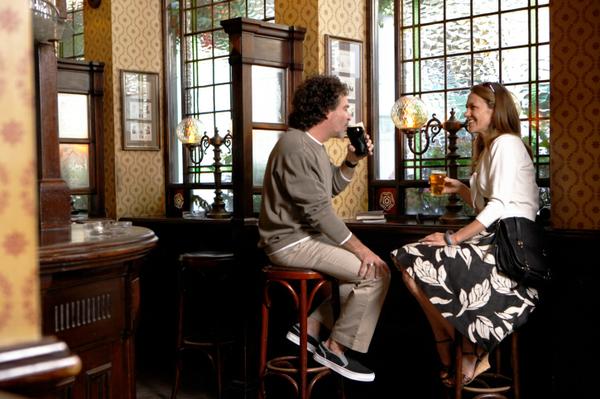How To Overturn Toxic Marital Patterns
I’ve never met a grandparent who doesn’t have a huge smile when talking about their newborn grandchild. My newest is now two months old. We look into each other’s eyes. I give her my undivided attention and she smiles with her whole body.
Little ones remind us of our basic human relationship needs:
- to love and be loved
- to give and receive
- to get attention
It’s easy to be aware of the relationship needs of our children and grandchildren. It’s challenging to see our spouse with the same needs.
Dr. John Gottman termed “stonewalling” as one of the Four Horsemen of the Apocalypse that predicts emotional and/or physical divorce. It does the opposite of meeting basic needs of our humanity.
It’s generally husbands who stonewall their wives. I’ve also seen couples where wife stonewalls husband.
Stonewalling is when one spouse doesn’t respond to the other.
It’s like talking to a stone wall. Marital stonewalling not only damages the relationship, but also damages the physical health of the individual. When a wife is stonewalled by her husband, her blood pressure rises and heart rate increases. Husbands who are stonewalled by their wives generally don’t have the same physical reactions.
Example # 1:
Wife walks in the door with plastic bags full of groceries. “Hi honey. Would you help me bring in the rest of the groceries?” Husband keeps watching the football game on TV as if she wasn’t there. He pretends he doesn’t hear her.
Example # 2:
Wife nags husband for the unfinished bathroom project. She runs out to the driveway while he is packing golf clubs in the trunk – something he’s looked forward to on his day off. She’s left to deal crying baby, dirty diapers and a dysfunctional toilet. He drives away. Her blood pressure rises.
Some who stonewall don’t mean to. They may be thinking about how to respond. Others have learned to stonewall to protect themselves from perceived attacks. They’ve done it all their lives.
Stonewallers go into their turtle shells to escape their overly dramatic spouses. One spouse takes the role of tiger and roars loud while the other takes the role of turtle and hides.
Neither husband or wife are aware they invite the responses they get.
The Still Face Experiment shows us how damaging stonewalling is to our basic needs. Edward Tronick, Ph.D. demonstrates infant/parent interaction studies with this three minute video. It shows a one year-old and her mom smiling and interacting with each other. For only a few seconds mother turns away and stonewalls her child. The child becomes distressed and cries. Of course, mother ends the experiment with comfort and empathy toward her baby.
We all need emotional connection from our spouse and those we’re close to.
The Angel of Acceptance – Reflective Listening includes:
- Direct and loving eye contact
- Acknowledging the others’ presence
- Verbal Communication
- Loving touches
As a review we’ve covered the first three of the four Horsemen of the Apocalypse – predictors of emotional or physical divorce -Criticism, Defensiveness, and Stonewalling. The first three of the four Angels of Acceptance include Praise, Openness, and Reflective listening.
Questions to Ponder:
Do you identify yourself as a turtle or tiger?
Choose one of the four reflective listening ideas. Comment on what you will do between now and next week.
What has worked in your relationship to invite loving responses?





